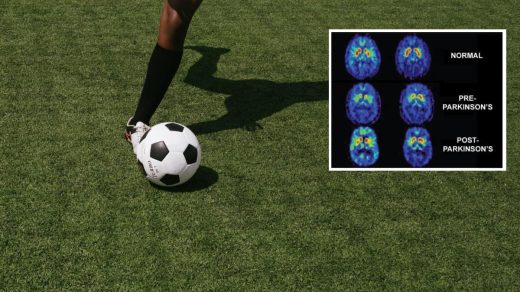
I’ve been a fitness instructor for most of my adult life, but 20 years ago the nature of my teaching changed when I was invited to lead an exercise class for people with Parkinson’s disease. I didn’t know anyone with the disorder and knew nothing about the condition, but I had a master’s degree in exercise physiology and was a researcher at heart. I reached out to several experts, including speech therapists and movement disorder specialists. I also talked to many people with the disease.
I attended seminars to learn what was new at the time and heard from people who participated in Big and Loud programs—physical therapy sessions that were developed to improve movement and speech for those with the disease. Boxing as exercise was becoming more popular, so I visited several studios and eventually incorporated boxing moves into my classes.
As part of my learning process, I joined a monthly Parkinson’s support group, where members would talk about their symptoms such as stiffness, slow movement, soft voice, and unsteadiness. Based on what I heard, I often adjusted the content of my classes to include more balance, strengthening, or facial and voice exercises.
After a while, my students found out that I played the djembe—a rope-tuned, skin-covered African drum—and asked if I would teach them. Before I knew it, one of the class members had bought drums for everyone, and the lessons began. Eventually the group played at several functions, including a Parkinson’s seminar in Connecticut, and was featured in Rhythms of Life, a documentary about the power of drumming.
My teaching for people with Parkinson’s has expanded to water exercise. The warm water and lifeguard supervision make it safe and inviting for my students, many of whom had stopped going to the pool after they were diagnosed. With a few sessions and lots of coaching, most are willing to try new movements, including swimming.
I have learned so much in the past 20 years from people with Parkinson’s disease who have shared their lives with me. Most of my students have become close friends. I’ve been inspired by their sense of humor, their commitment to exercise, and their support of one another in class. I now know when to push them and when to ease off, when to make them laugh and when to let them cry. We’ve had fun trying new things, and we’ve been amazed by what we’ve accomplished.
For anyone newly diagnosed or despairing, I encourage you to try a new activity—boxing, drumming, water exercise, or even walking. Your life and the lives of those around you will be better for it.
Phyllis Drescher lives in Wallingford, CT, with her husband, John. She holds black belts in judo and karate and is a five-time national judo champion in the kata division. In 2020 the mayor of Wallingford proclaimed February 17 to be Phyllis Drescher Day, in honor of her 50 years of service at the Wallingford YMCA.



